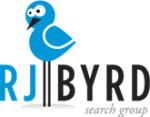You’re likely used to the standard interview where they ask you to self-analyze your strengths and weaknesses along with how many years of experience you have. But both job seekers and interviewers know these questions fail to tell the whole story, so experts in the field have developed a new interviewing technique – “Behavioral Interviews.”
Behavioral interviews differ from tired standard interviews because they seek to understand how you will approach situations in a real-world environment. Programmers will be somewhat familiar with the approach as employers will typically run them through real-time tests to evaluate their problem-solving skills. But behavioral interviews try to take it a step further to understand how you’ll approach your day-to-day as well as stressful situations. This is extremely helpful for a wide variety of fields as not every job can offer real-time tests like programming fields can.
So how can you prepare? We’ve outlined some of the common behavioral interview techniques with tips on how to answer them.
1. Describe a time when you came up with an innovative solution to a challenge your company was facing.
The goal of this question is to see how you use your creativity to bring solutions to the company. They may also ask you if there was anyone else involved to see how you work as a team when implementing new ideas.
2. Was there a time when you failed to meet a deadline? What did you fail to do and what did you learn from it?
This question isn’t simply about figuring out if you are capable of meeting deadlines – it’s also meant to figure out if you are willing and able to learn from your mistakes and make proper adjustments.
3. Tell me about a time when you needed to use reference materials to write a research paper. What was the topic and what journals did you read?
Companies want to know if you’re able to do more in-depth research than a simple Google search. It’s important to show that you’re able to not only find references but to also decide which sources are actually reliable – not just the sources that support your assumptions.
4. Has there been a time when a co-worker or classmate has criticized you or your work in front of others? How did you respond and how has it affected how you communicate?
How you respond to criticism is important, whether you believe the criticism is warranted or not. Employers want to understand how you handle potentially embarrassing situations and if you’re able to accept criticism.
5. Describe a time when you put your own needs aside to help a coworker or classmate to understand a task or concept. How did you approach instructing them and what was the result?
There are going to be times when you need to help others for a multitude of reasons – your teamwork and ability to assist to achieve the overall goal is crucial to any company’s success, so they’ll want to know if you’re willing to do so. They’ll also want to know if you approached the situation with patience and clear communication.
As you can see, the purpose of behavioral interview techniques is to understand your mindset more than simply reading off your experience. It’s important that you answer these questions honestly as well – there are no “right” answers and it’ll quickly become apparent if you lied based on your real performance. Take your time to answer the questions in as much detail as possible and don’t be afraid to brag about your abilities!
Behavioral interviews differ from tired standard interviews because they seek to understand how you will approach situations in a real-world environment. Programmers will be somewhat familiar with the approach as employers will typically run them through real-time tests to evaluate their problem-solving skills. But behavioral interviews try to take it a step further to understand how you’ll approach your day-to-day as well as stressful situations. This is extremely helpful for a wide variety of fields as not every job can offer real-time tests like programming fields can.
So how can you prepare? We’ve outlined some of the common behavioral interview techniques with tips on how to answer them.
1. Describe a time when you came up with an innovative solution to a challenge your company was facing.
The goal of this question is to see how you use your creativity to bring solutions to the company. They may also ask you if there was anyone else involved to see how you work as a team when implementing new ideas.
2. Was there a time when you failed to meet a deadline? What did you fail to do and what did you learn from it?
This question isn’t simply about figuring out if you are capable of meeting deadlines – it’s also meant to figure out if you are willing and able to learn from your mistakes and make proper adjustments.
3. Tell me about a time when you needed to use reference materials to write a research paper. What was the topic and what journals did you read?
Companies want to know if you’re able to do more in-depth research than a simple Google search. It’s important to show that you’re able to not only find references but to also decide which sources are actually reliable – not just the sources that support your assumptions.
4. Has there been a time when a co-worker or classmate has criticized you or your work in front of others? How did you respond and how has it affected how you communicate?
How you respond to criticism is important, whether you believe the criticism is warranted or not. Employers want to understand how you handle potentially embarrassing situations and if you’re able to accept criticism.
5. Describe a time when you put your own needs aside to help a coworker or classmate to understand a task or concept. How did you approach instructing them and what was the result?
There are going to be times when you need to help others for a multitude of reasons – your teamwork and ability to assist to achieve the overall goal is crucial to any company’s success, so they’ll want to know if you’re willing to do so. They’ll also want to know if you approached the situation with patience and clear communication.
As you can see, the purpose of behavioral interview techniques is to understand your mindset more than simply reading off your experience. It’s important that you answer these questions honestly as well – there are no “right” answers and it’ll quickly become apparent if you lied based on your real performance. Take your time to answer the questions in as much detail as possible and don’t be afraid to brag about your abilities!

